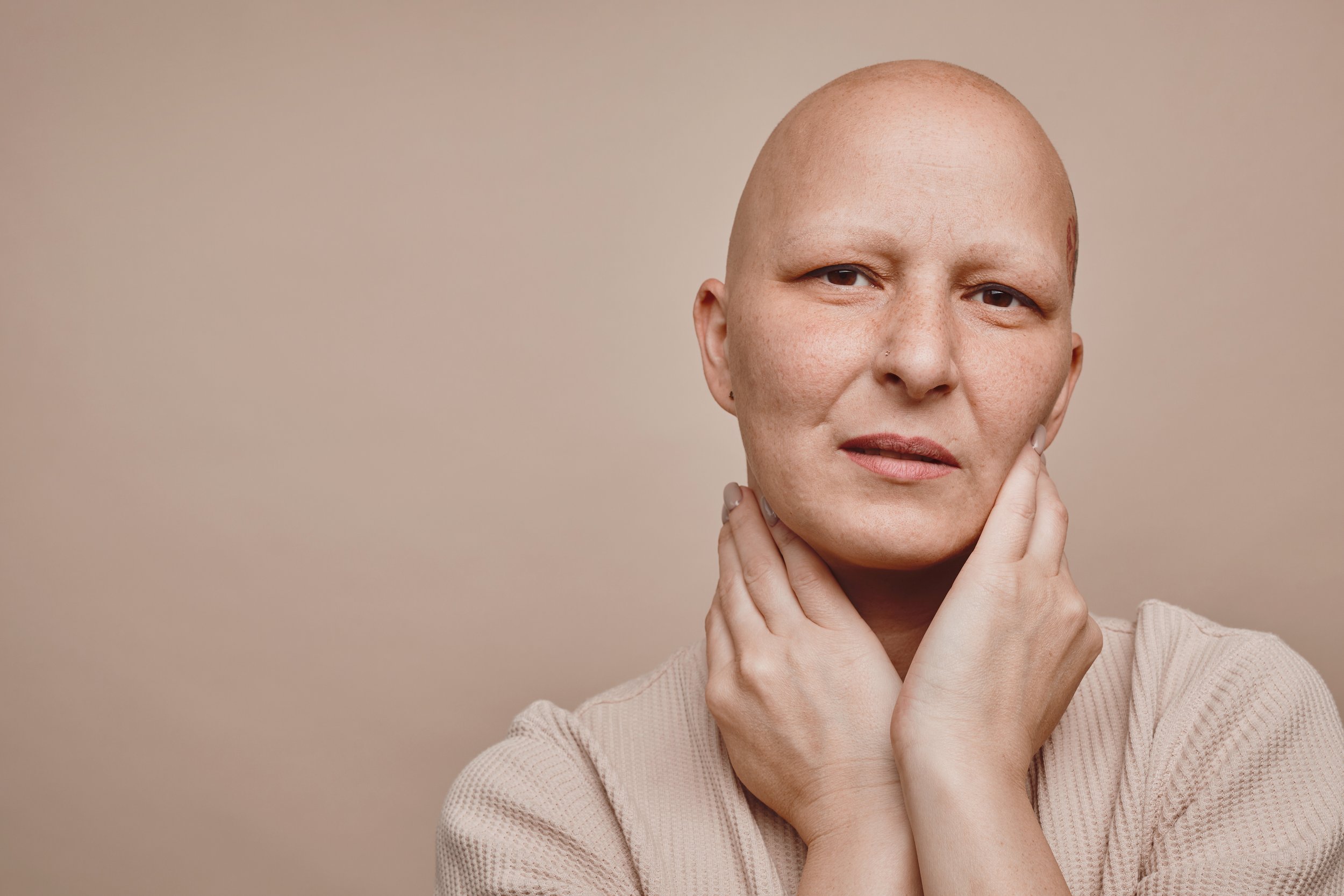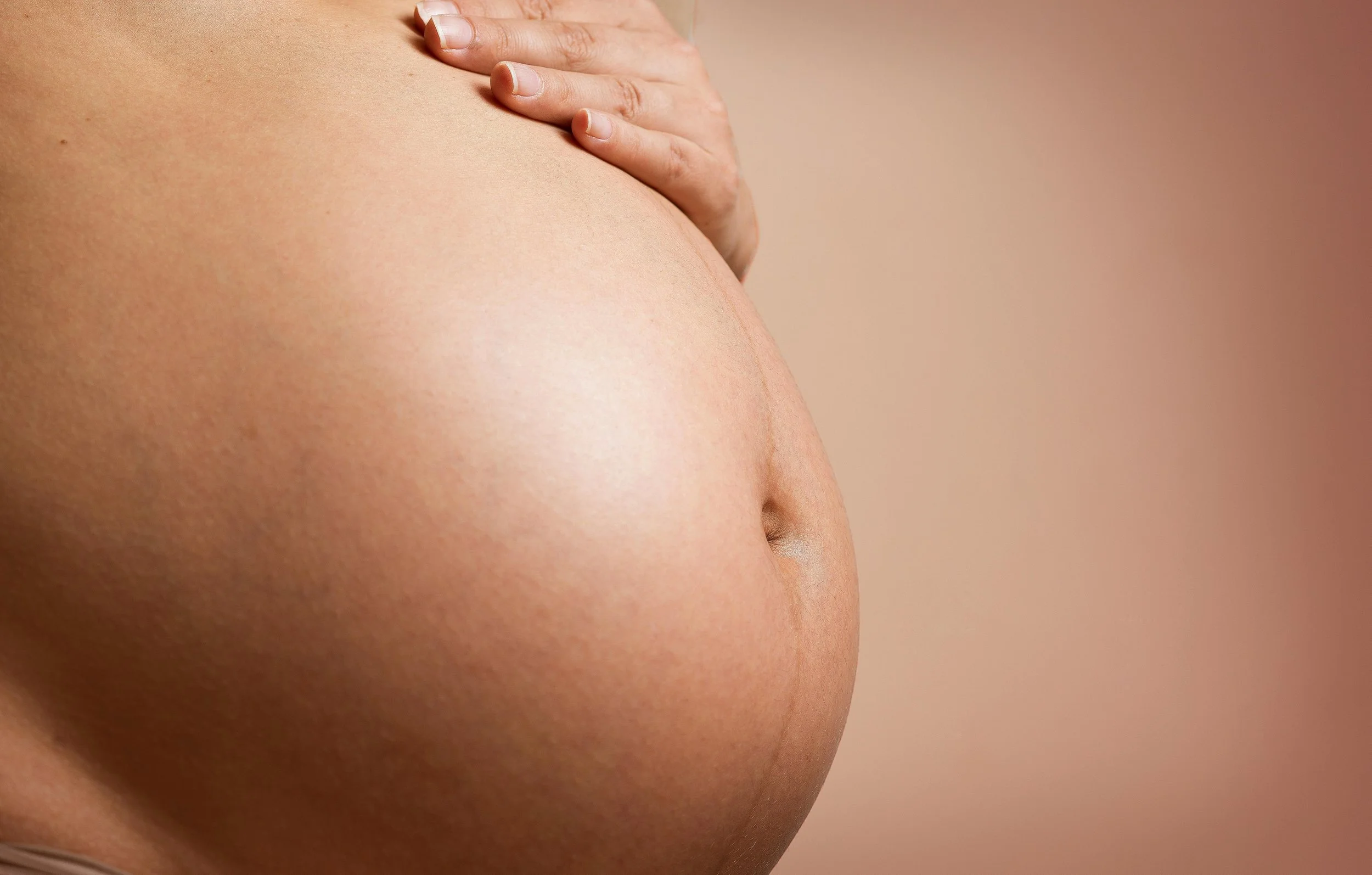Cancer Support & Acupuncture
A Brief Introductory Guide

Understanding the Challenges of Cancer and the Benefits of Acupuncture
Cancer is a complex and multifaceted disease that affects millions of people worldwide, presenting numerous physical, emotional, and psychological challenges. The diagnosis of cancer is often overwhelming, bringing with it fear, anxiety, and uncertainty about the future. The physical impact of cancer and its treatments, such as chemotherapy, radiation, and surgery, can be debilitating and significantly reduce a person’s quality of life. Many patients experience side effects like pain, nausea, fatigue, loss of appetite, and weakened immune function, making it difficult to maintain a sense of normalcy and well-being. While conventional treatments are necessary for addressing the disease, complementary therapies like acupuncture can offer valuable support in managing symptoms, reducing side effects, and promoting overall health.
The Wellspring Integrative Approach
We at Wellspring Health are privileged to be a member of your care team. Wellspring Health uses Traditional Chinese Medicine (Acupuncture & Herbal Medicine) and Conventional medicine in an integrative approach. This combination can enhance treatment outcomes, manage the side effects of conventional treatments (like chemotherapy), and provide additional support for chronic or complex conditions. We love science and we love working with conventional medical Doctors. This approach combines the strengths of both systems, offering a broader range of treatment options and emphasizing the prevention of disease as well as the treatment of existing conditions.
Click to jump to section:
Challenges Associated with Cancer and Its Treatments
Physical Pain and Discomfort: Cancer itself, as well as treatments such as surgery, radiation, and chemotherapy, can cause significant pain and discomfort. This may include nerve pain, bone pain, joint pain, and muscle soreness. Pain can be acute or chronic and can severely limit a patient’s mobility and daily activities, affecting their overall quality of life.
Nausea and Vomiting: Chemotherapy and radiation therapy are known for causing gastrointestinal side effects like nausea, vomiting, and loss of appetite. These symptoms can lead to malnutrition, dehydration, and weight loss, further weakening the body’s ability to cope with the disease and treatment. Managing nausea is a crucial part of cancer care to ensure that patients can maintain their strength and energy levels.
Fatigue and Low Energy: Cancer-related fatigue is one of the most common and debilitating side effects experienced by patients. This type of fatigue is different from regular tiredness—it is more severe and not necessarily relieved by rest. It can make it difficult for patients to engage in daily activities, maintain a positive outlook, or continue with treatment.
Emotional and Psychological Impact: A cancer diagnosis often triggers intense emotional reactions such as fear, anxiety, depression, and stress. The uncertainty of the future, concern over treatment outcomes, and changes in body image can all contribute to emotional distress. This mental and emotional burden can affect sleep, appetite, and overall quality of life.
Sleep Disturbances: Many cancer patients experience sleep disturbances due to pain, anxiety, or side effects of treatment. Insomnia or fragmented sleep can exacerbate fatigue and contribute to a cycle of physical and emotional distress. Poor sleep can weaken the immune system and hinder the body’s ability to recover and heal.
Weakened Immune System: Cancer treatments such as chemotherapy and radiation can suppress the immune system, leaving patients more vulnerable to infections and other complications. This can delay treatment schedules and affect the overall prognosis.
From Our Clients
“I was diagnosed with breast cancer this year. I saw Dr. Manges pre/post-mastectomy and the treatment sped up my recovery, and hormone balancing and relieved the neuropathy pain I had post breast reconstruction. Highly recommend Wellspringhealth.”
-Jenny C.
“I was in bi weekly chemo last year and saw Dr. Manges weekly. My treatments at Wellspringhealth kept my nausea and digestive symptoms under control and my energy levels in a place where I was able to participate in my life. I had a few weeks of CIPN (Chemo Induced Neuropathy) which Dr. Manges was able to reverse with a targeted treatment protocol. Cannot recommend them enough!”
- Carol B.
“I’m so grateful I found Kirsten through a friend. She’s helped me through so much - lower back pain, IVF and now mitigating chemo side effects and healing. I always leave Kirsten’s office feeling uplifted and relaxed. Her bedside manner is amazing, I’ve always felt comfortable sharing it all, and appreciate her holistic approach to treatment. Her office is clean, modern, and comfy - I can’t recommend her enough!”
- Lisa C.
Benefits of Acupuncture for Cancer Support
Acupuncture, a therapeutic practice rooted in Traditional Chinese Medicine (TCM), involves the insertion of fine, sterile needles into specific points on the body to stimulate energy flow (Qi) and promote healing. It has gained recognition as a complementary therapy that can support cancer patients by alleviating symptoms, reducing side effects, and enhancing overall well-being. Here’s how acupuncture can benefit those living with cancer:
Alleviates Pain and Discomfort: Acupuncture is highly effective in managing cancer-related pain by stimulating the body’s natural pain-relief mechanisms. It promotes the release of endorphins and other neurotransmitters that reduce pain perception. Acupuncture can be used to alleviate pain caused by surgery, nerve damage, or radiation, making it a valuable tool for improving comfort and quality of life.
Reduces Nausea and Vomiting: Acupuncture has been shown to significantly reduce nausea and vomiting associated with chemotherapy and radiation therapy. By targeting specific acupuncture points, such as P6 (Pericardium 6) on the wrist, acupuncture helps regulate the digestive system and reduce gastrointestinal distress. This can improve appetite, prevent dehydration, and help patients maintain better nutrition.
Improves Energy Levels and Reduces Fatigue: Cancer-related fatigue is one of the most challenging symptoms to manage. Acupuncture can help boost energy levels by promoting better circulation, enhancing oxygen delivery to tissues, and supporting overall vitality. It also helps regulate the body’s energy flow, reducing fatigue and promoting a sense of physical and mental well-being.
Supports Emotional Health and Reduces Stress: Acupuncture has a calming effect on the nervous system, helping to reduce stress, anxiety, and depression. It promotes relaxation and emotional stability by activating the parasympathetic nervous system, which counters the body’s stress response. Acupuncture sessions can help patients feel more at ease, improve their mood, and support emotional resilience during the cancer journey.
Enhances Immune Function: Acupuncture can help strengthen the immune system by promoting the production of white blood cells and enhancing the body’s natural defense mechanisms. This can be particularly beneficial for patients undergoing chemotherapy or radiation, as it may help reduce the risk of infections and support faster recovery.
Improves Sleep Quality: By calming the mind and reducing pain and anxiety, acupuncture can improve sleep quality and reduce insomnia. Better sleep helps patients feel more rested, promotes healing, and supports the body’s overall ability to cope with the physical and emotional challenges of cancer treatment.
Conditions We Treat With Acupuncture
Acupuncture is used to address a wide variety of health conditions, including but not limited to:
Fertility & Pregnancy:
Female & Male Infertility, IVF/IUI, Labor Induction & Delivery, Trimester & Post Pardum Supports, and Lactation.Pain Management:
Chronic pain, arthritis, back and neck pain, migraines, and sciatica.Digestive Issues:
Irritable bowel syndrome (IBS), nausea, and gastritis.Mental Health and Stress:
Anxiety, depression, insomnia, and stress management.Women's Health:
Menstrual disorders, fertility support, menopause symptoms, and pregnancy-related conditions.Immunity, Allergies, Respiratory Conditions:
Allergies, asthma, and sinusitis.Neurological Disorders:
Stroke rehabilitation, Bell’s palsy, and peripheral neuropathy.Internal Medicine:
Stroke rehabilitation, Bell’s palsy, and peripheral neuropathy.Sleep Support & Insomnia:
Stroke rehabilitation, Bell’s palsy, and peripheral neuropathy.
Parting Thoughts:
Cancer presents numerous physical and emotional challenges that can significantly impact a person’s quality of life. While conventional treatments are essential for managing the disease, complementary therapies like acupuncture can offer additional support by alleviating symptoms, reducing side effects, and promoting overall well-being. By addressing both physical and emotional aspects of health, acupuncture provides a holistic approach to cancer care, helping patients feel more comfortable, balanced, and empowered throughout their journey. Through its multifaceted benefits, acupuncture can enhance quality of life and support better outcomes for individuals living with cancer.
Resources & Links to Learn More
Acupuncture has been studied for its potential benefits in managing various symptoms associated with cancer and its treatments. Here are five clinical studies highlighting its positive effects:
Acupuncture for Cancer Pain: A Systematic Review and Meta-Analysis: This study evaluated the effectiveness of acupuncture and acupressure in reducing cancer-related pain. The analysis included 17 randomized clinical trials and concluded that acupuncture was associated with significant reductions in pain intensity among cancer patients. JAMA Network
Effectiveness of Electroacupuncture or Auricular Acupuncture vs Usual Care for Chronic Musculoskeletal Pain Among Cancer Survivors: The PEACE Randomized Clinical Trial: This trial assessed the impact of electroacupuncture and auricular acupuncture on chronic musculoskeletal pain in cancer survivors. Results indicated that both acupuncture methods significantly reduced pain compared to usual care. JAMA Network
Acupuncture for Cancer Pain: An Evidence-Based Clinical Practice Guideline: This guideline was developed based on a systematic review and provides recommendations for using acupuncture in managing moderate to severe cancer pain. It strongly recommends acupuncture as a complementary treatment to relieve cancer-related pain. Clinical Medicine Journal
Acupuncture vs Massage for Pain in Patients Living With Advanced Cancer: The IMPACT Randomized Clinical Trial: This study compared the effects of acupuncture and massage therapy on pain management in patients with advanced cancer. Findings demonstrated that acupuncture led to significant reductions in pain intensity and improved quality of life measures. JAMA Network
Acupuncture - Memorial Sloan Kettering Cancer Center: Clinical trials at Memorial Sloan Kettering Cancer Center have demonstrated that acupuncture can help reduce pain, including joint or nerve pain associated with cancer treatments, as well as other types of chronic pain. Several trials in cancer patients also show that acupuncture improves sleep and reduces fatigue. Memorial Sloan Kettering Cancer Center
These studies suggest that acupuncture offers benefits in managing cancer-related symptoms, particularly in reducing pain and improving the quality of life for patients undergoing cancer treatment.











